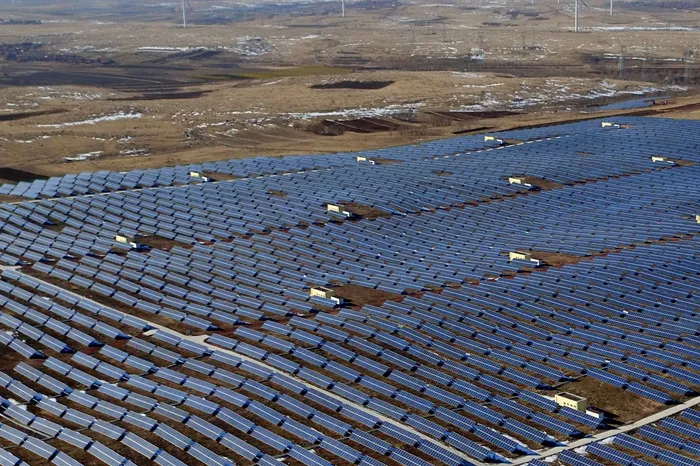Kazakhstan’s green finance sector has achieved a new milestone with the introduction of the International Renewable Energy Certificate (I-REC) trading system by the Astana International Exchange (AIX). The launch in February 2025 marks a significant step towards increasing the country’s participation in global climate finance and renewable energy markets. The first trade, made by Valor Carbon, a London-based climate financing company, involved the purchase of 1,000 I-RECs from Kazakhstan’s state-owned enterprise, Samruk Green Energy.
In an exclusive interview with Astana Times, Valor Carbon’s leadership explained the rationale behind this acquisition, their outlook on the carbon market, and their long-term plans for Kazakhstan and Central Asia. The company, which has offices in Astana and Bishkek, sees great potential for the region to capitalize on green energy certifications and carbon financing mechanisms.
Setting a Precedent for Carbon Markets
Carbon markets allow governments and non-state actors to trade greenhouse gas emission credits, providing a way to incentivize emission reductions. However, a significant portion of carbon market transactions occurs through over-the-counter (OTC) markets, which are typically opaque and lack price transparency.
Valor Carbon CEO Rocco Huesch emphasized the importance of moving these transactions to an exchange like AIX. He noted that I-RECs are standardized certificates that verify the origin of electricity from renewable sources, making them ideal for trading on a formal exchange. By doing so, Kazakhstan could lay the groundwork for a shift from OTC to exchange-based carbon market trading, which would increase transparency and liquidity.
Nurzhan Aspandiyar, Valor Carbon’s regional director, also expressed optimism about this shift, highlighting that it could open the door for trading other environmental goods in Kazakhstan. He pointed out that while there is an emissions trading system (ETS) in place, it has not been very active since 2022. He stressed that liquidity and price discovery are essential for the effective functioning of such markets.
Kazakhstan’s Emissions Trading System
Launched in 2013, Kazakhstan’s ETS now covers nearly half (47%) of the country’s emissions, with 135 companies across energy, mining, and manufacturing sectors involved. However, all carbon allowances in the system are distributed free of charge, which has kept carbon prices artificially low.
Recent data shows that one carbon unit in Kazakhstan’s ETS is priced at around $1, which is significantly lower than the $90 per unit seen in the European market. Valor Carbon recognizes the growing momentum to reform the ETS and supports efforts to enhance its design, although Huesch cautions that a delicate balance is needed.
He explained that Kazakhstan must meet its net-zero goals and its commitments under the Paris Agreement, while ensuring that the reforms do not stifle economic growth. Given the importance of heavy emitters to the Kazakh economy, the carbon market design must be sensitive to the country’s economic needs.
Reforming the ETS and Leveraging Carbon Credits
A key area of interest for Valor Carbon is the role of domestic carbon credits. Huesch believes that allowing carbon credits generated by local projects to enter the ETS would provide a way to channel revenue from the system into positive environmental initiatives in Kazakhstan. This approach has been successfully tested in markets such as the United States and Singapore.
Furthermore, Huesch discussed the potential of carbon credits under Article 6 of the Paris Agreement, which enables countries to transfer carbon credits to each other for emission reductions. While implementing this mechanism in Kazakhstan would require significant effort, Huesch is optimistic about its potential to attract global investments and support the country’s green transition.
Global Carbon Market and Kazakhstan’s Role
The global carbon market is divided into two main sectors: the voluntary market and the compliance market. The voluntary market, which is not directly regulated by governments, is projected to reach a value of between $5 billion and $30 billion by 2030, with the high-end estimate surpassing $50 billion. A key example of a compliance market is the CORSIA program, which requires international airlines to offset emissions from their flights.
Huesch noted that while Kazakhstan could benefit from both voluntary and compliance markets, the implementation of Article 6 is a complex issue that will require careful coordination with other nations. He emphasized that Kazakhstan has the potential to leverage both markets for domestic and international carbon trading, further positioning itself as a leader in climate finance.
Valor Carbon’s Commitment to Kazakhstan’s Green Future
Valor Carbon remains committed to supporting Kazakhstan’s green transition by helping the country align its carbon market with global standards. The company sees the carbon market as a strategic entry point for Kazakhstan to tap into global climate financing opportunities.
In April 2025, Valor Carbon proposed a new project in Kyrgyzstan that could attract up to $180 million in climate financing. This project involves planting over 10 million trees on 25,000 hectares of land around Issyk-Kul Lake and generating carbon credits in the process. The company aims to replicate similar initiatives in Kazakhstan, contributing to both the country’s climate goals and economic development.
Looking Ahead: Kazakhstan’s Green Transformation
As Kazakhstan looks towards a greener future, the development of its carbon market and renewable energy certificate system plays a crucial role in attracting international investments and enhancing its global standing in climate finance. With the launch of I-REC trading and the ongoing efforts to reform the ETS, Kazakhstan is setting a strong example for Central Asia and beyond.
As the market matures, Valor Carbon’s leadership anticipates that the increased transparency and liquidity in carbon trading will create more opportunities for local and international companies to participate in the country’s green transformation. With ongoing reforms and investments in sustainable projects, Kazakhstan is poised to play a pivotal role in global efforts to combat climate change.
Related Topics:
DA’s Role in VAT Increase Exposed Despite Denials
How to Tackle Debt in a Rising Cost-of-Living Environment: Expert Tips
India-U.S. Trade Pact Expected to Be Finalized This Year: Sitharaman

